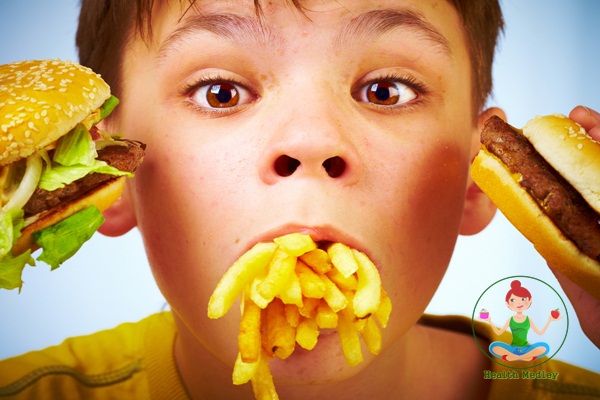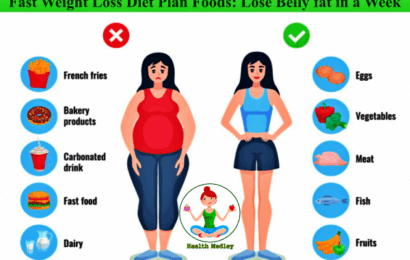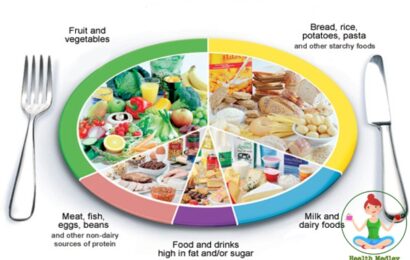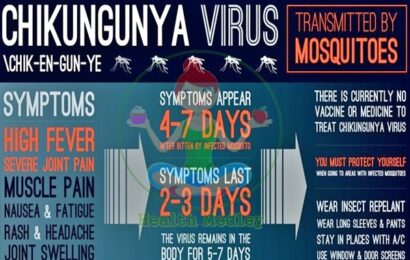Childhood obesity is among one of the most challenging health issues faced by the population of the 21st Century. The problem is prevalent at the global level and is steadily affecting both middle and low-income countries of the world. Obesity statistics worldwide reveal that the number of overweight children under the age of 5 is more than 42 million worldwide, with the majority of them residing in developing nations.
The rate of increase in childhood obesity is 30% more in developing countries when compared to developed countries. It is feared that if the current pace of increase in obesity continues, more than 70 million children could be affected by it worldwide, by the year 2025.
Childhood Obesity health risk has been closely monitored over the years and it has been revealed that obesity and diabetes have a strong correlation as obese children are likely to remain obese into adulthood as well and stand to face the risk of developing the disease along with several other cardiovascular diseases. If intervention is not done, more and more children could be facing this health issue, which will continue to remain with them into adulthood.
What is Childhood Obesity?
In the terms of the medical world, childhood obesity is a condition that can affect children and adolescents when they are well above the normal weight for their age and height. It is difficult to define in exact terms what weight is obese, however, a BMI (Body Mass Index) can be used as an appropriate measure for concluding whether a child is obese.
Although it is not a perfect means of determining obesity, it is still considered useful for evaluation of the matter. BMI works on the height and weight of a child to determine his body fat and is helpful for screening weight and obesity issues in a child above the age of 2. A physician might suggest additional means to detect obesity in a child such as a skinfold thickness measurements, plus evaluation of diet, family history, and physical activity.
Reasons for Childhood Obesity
It is necessary to understand the root cause of any problem before suggesting the diagnosis. In an analogous manner, it is necessary to understand what factors lead to obesity in children before any treatments for obesity are undertaken. At the under root level, a basic cycle of excessive eating with little or no physical activity starts the problem of obesity in children.
It is understood that since a child, at his development stage, requires ample nutrition and dietary supplements to achieve a healthy level of growth and development. The problem arises when caloric intake exceeds caloric burnout during a day. When this imbalance exceeds a certain limit, childhood obesity occurs, which has some serious consequences.
What are the Causes of Childhood obesity?
‘What Causes Childhood Obesity’, a question that often comes to mind whenever we hear about the issue, has some simple yet serious answers. The rise in worldwide figures of children suffering from obesity is hard to ignore and it is saddening to know that the causes for the same are few simple issues which are easily ignored and overlooked.
- Increase in eating out habits owing to busy schedules
- Access to cheap and variety of junk food
- Increase in portion sizes of food servings at homes and restaurants
- Increase in consumption of sugars in the form of aerated soft drinks and juices
- Indulging in excessive gaming on TV, computers, mobiles and proportionately little time outside in parks
- Lack of adequate physical work out.
- Lack of adequate information regarding healthy choices of food over their junk counterparts
- In few cases, genetic and hormonal factors may have a say, in a child developing obesity.
As a result of being obese, a child is further rendered unable to indulge in physical activities. This only elevates the problem in the child and it is like a vicious cycle that is hard to break. Many children may face psychological consequences as a result of being obese, with depression being the most easily induced one.
Harmful Effects of Childhood Obesity
Childhood Obesity can have some serious repercussions on a child’s physical, social and mental health. Obese children stand a greater risk of facing serious health issues later in life. Some of these health issues can be:
- Cardiovascular diseases such as stroke and heart failure
- Insulin resistance, which is often a sign of an impending Diabetes
- Cancers, such as endometrial, breast and colon
- Certain disabilities
- High levels of cholesterol and blood pressure
- Asthma
- Sleeping disorders such as obstructive sleep apnea
- Early puberty and menstruation
- Musculoskeletal disorders such as osteoarthritis which is a disabling and degenerative disease of the joints.
Apart from the physical implications of childhood obesity that impact a child, certain societal repercussions might be the actual, more prominent cause of worry for the child himself. Bullying and teasing are quite common among children who find it amusing to prank and tease their obese peers. Constant bullying and nagging might degrade a child’s self-esteem, which might be irreversible.
Obese children also suffer from poor social skills and high levels of anxiety. At two extremes, either obese children are hyperactive during classes in a negative way or are completely reluctant to participate in daily activities. These issues can gradually develop into a form of depression that might be hard to solve.
How to Fight Childhood Obesity – The Treatment
Prevention is always a better road to take than a cure. While childhood obesity can be detected and cured to an extent, it is best to detect early signs and take precautionary measures to control the effects. As we have seen, the cause of obesity and excessive weight is marginally simple and can be avoided to a large extent.
Making the healthy choice of foods and bringing minor changes in a child’s lifestyle can greatly aid obesity weight loss. Obese weight loss is not an unachievable foot and can be easily monitored with a healthy intake of nutrients and healthy foods, combined with the right type of exercises. The childhood obesity treatment can be undertaken, where the physician will run various tests and diagnosis on the child to determine his level of obesity and treat him accordingly.
The childhood obesity prevention program can have a major impact in educating parents and children about the ill effects of obesity and offer different measures to counter the problem and even suggest ways to prevent it. There are many such programs that are run by different organizations all across the world for varying time durations.
You can be a part of it to make sure that your child remains free of this problem, or you can volunteer with the organization to spread awareness about obesity and make a difference yourself for many other kids. These programs work in every way possible by addressing the underlying issue, protection, prevention, approach and development and effective means to counter the problem of obesity in kids.
Final Words
Remember, obese children are no different than their normal peers. Every child needs the care and attention of his parents, the society, and the environment to ensure that he is not affected by the wrong side of being overweight. Ultimately, a child is like wet clay.
He will, and can be molded in any shape because he does not have his own understanding of right and wrong. All they need is care and love for their elders so that they can prevent themselves from being affected by obesity and if they are obese, then they need adequate attention to help them solve the problem.








